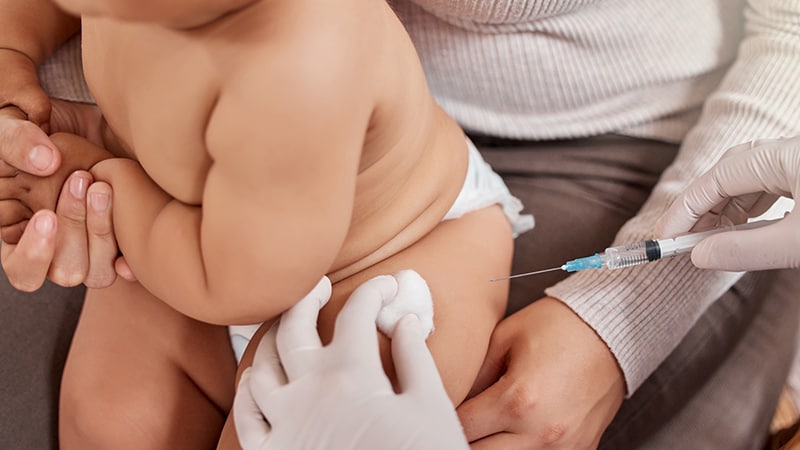Febrile Infants Recently Immunized Have Lower Risk of Serious Bacterial Infections
The study evaluated 508 febrile infants aged 6-12 weeks who presented at two US military academic emergency departments over 4 years. 114 of these infants were categorized as "recently immunized" (within 72 hours before emergency department visit) and the rest as "not recently immunized".
The key findings are:
- The prevalence of serious bacterial infections (SBIs) was 3.5% in recently immunized infants, compared to 13.7% in non-recently immunized infants.
- Among recently immunized infants, the prevalence of SBIs was lower in those immunized within the first 24 hours (2%) compared to those immunized more than 24 hours before (14.3%).
- Almost all identified SBI cases were urinary tract infections, with only one case of pneumonia in an infant with respiratory symptoms within 24 hours of immunization.
The study suggests that physicians should consider a less invasive approach, such as obtaining a urinalysis, when evaluating recently immunized febrile infants, especially those presenting within 24 hours of immunization. This is in line with the general recommendation to obtain a urinalysis for all recently immunized febrile infants over 60 days.
The study's limitations include small sample size, retrospective design, and potential biases from the military healthcare setting. Further research is needed to confirm the findings and their generalizability.
Customize Summary
Rewrite with AI
Generate Citations
Translate Source
To Another Language
Generate MindMap
from source content
Visit Source
www.medscape.com
Recently Immunized Febrile Infants Have Low Infection Risk
Key Insights Distilled From
by Zeel at www.medscape.com 04-15-2024
https://www.medscape.com/viewarticle/recently-immunized-febrile-infants-have-low-infection-risk-2024a100073y
Deeper Inquiries
